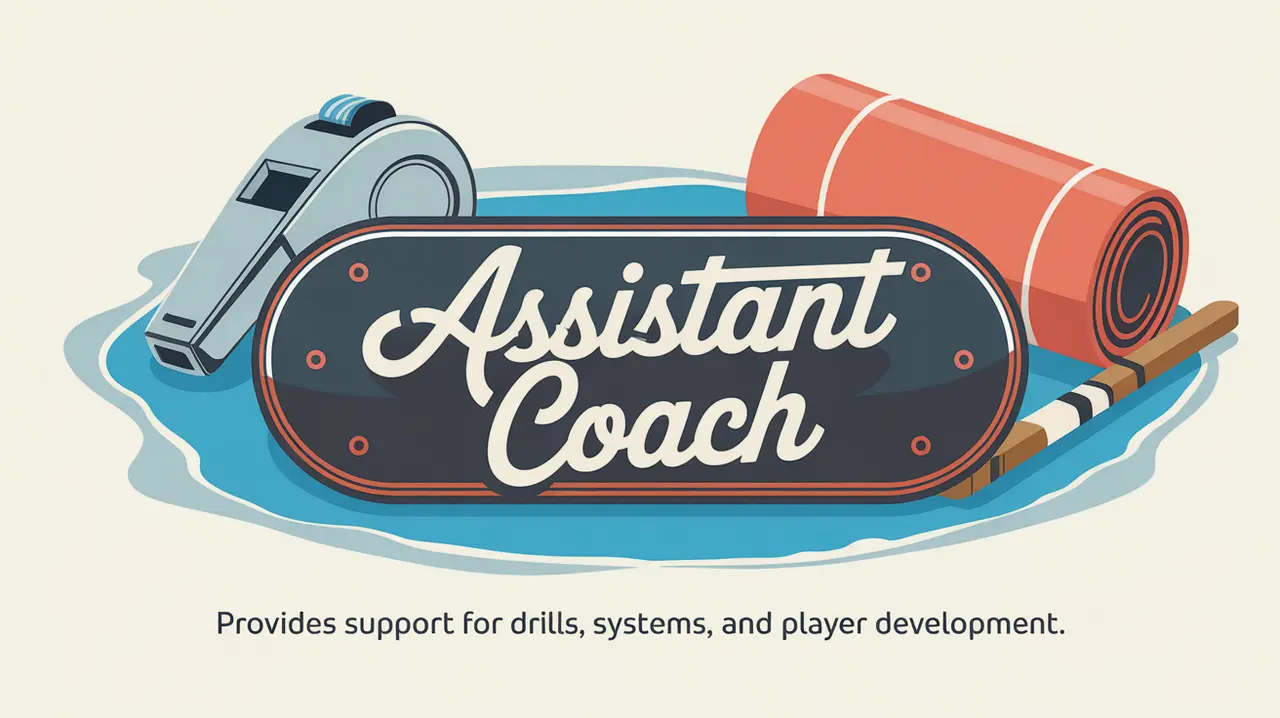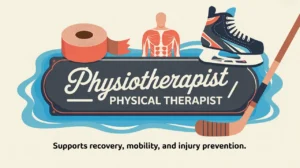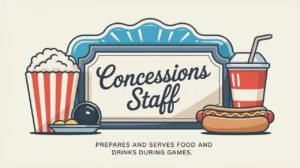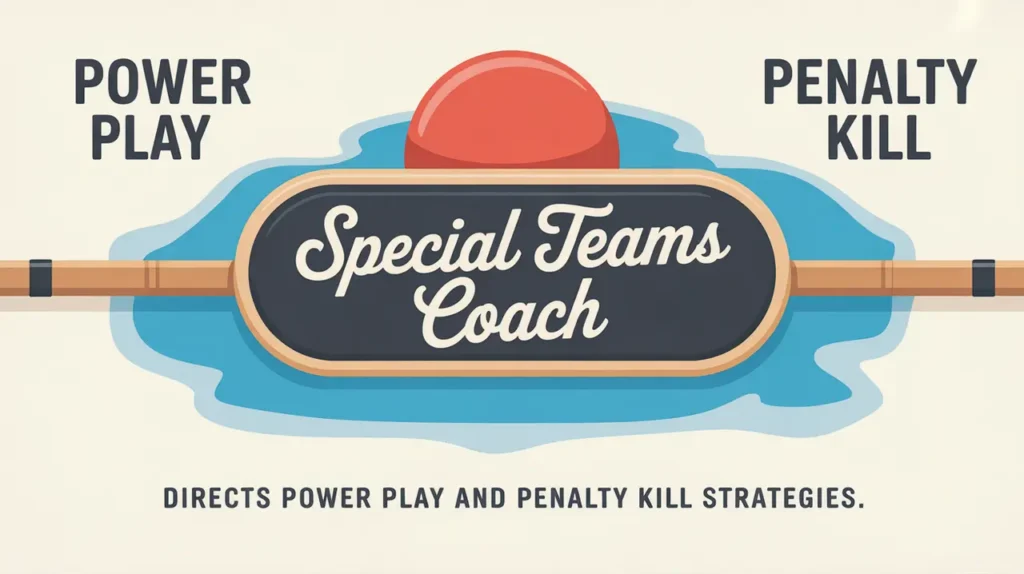Jim’s Intro to the Assistant Coach
Hi folks, Jim here, the only commentator who once tried to write up a play as a walk-on assistant coach, and scribbled an impressive-looking “hangman” rendition (that I still have framed).
What is an assistant coach?
The assistant coach is a specialist and support leader who works under the head coach and alongside the associate coach, focusing on specific tactical areas, skill development, and bench operations.
While the head coach sets the overall vision and the associate coach bridges strategy and leadership, assistant coaches execute the finer details. They work closely with players on technique, coordinate units like power play or penalty kill, and provide real-time tactical input from their assigned responsibilities.
How does it work?
Assistant coaches influence the game through specialization, preparation, and communication:
Specialized Tactical Roles
- Assistant coaches often take charge of specific units or positional groups, such as defense, forwards, power play, or penalty kill.
- They design drills, run meetings, and track performance in their area of expertise.
Skill Development
- Assistants spend significant time working one-on-one or in groups with players to refine mechanics, including shooting techniques, breakout execution, faceoffs, or defensive positioning.
- Their role bridges daily practice habits with game performance.
Bench Management
- During games, assistant coaches track matchups, monitor player shifts, and relay adjustments to their units.
- They often handle line changes on their assigned side of the bench, keeping rotations smooth and strategic.
Video and Scouting Work
- Many assistant coaches break down film to prepare scouting reports on opponents or analyze their team’s execution.
- They help identify patterns, tendencies, and exploitable gaps.
Supporting Game Strategy
- Assistant coaches provide tactical feedback to the head and associate coaches, especially between periods or during stoppages.
- Their perspective from focused responsibilities gives depth to the overall strategy.
Common Situations Involving Assistant Coaches
- Running Specialized Drills: Leading focused segments of practice for power play, defense, or skill work.
- Tracking Player Shifts: Making sure matchups and ice time align with the game plan.
- Giving Tactical Feedback: Sharing observations with the head coach during games or intermissions.
- Working with Developing Players: Providing extra attention and feedback to younger or emerging talent.
- Breaking Down Opponent Systems: Preparing targeted plans for upcoming matchups.
How do you make good decisions with it?
Great assistant coaches rely on preparation, communication, and precision.
- Master Your Specialty: Know your tactical area inside and out.
- Be the Eyes and Ears: Spot details others might miss and communicate them clearly.
- Support the Chain of Command: Coordinate smoothly with head and associate coaches.
- Give Focused Feedback: Players respond best to clear, actionable instruction.
- Stay Organized: Your preparation sets the tone for your unit’s performance.
How do you master it?
Mastering the assistant coach role requires deep technical knowledge, patience, and the ability to teach effectively. Great assistants excel at translating strategy into executable actions. They build strong relationships with players, earning trust as both teachers and tactical guides. Over time, many assistant coaches grow into associate or head coaching roles by refining their voice and leadership presence.
What does it look like when done right?
A great assistant coach runs crisp, focused practices, communicates seamlessly with the staff, and keeps their unit sharp during games. Players improve under their guidance, and the team’s structure feels tighter and more disciplined. Their work might not always make headlines, but it’s felt every time a system clicks on the ice.
Commentator’s Corner
Jim’s Take
Assistant coaches are like mechanics in a Formula One pit crew. You don’t always see them, but their precision keeps the machine humming at top speed.
Parent Tip
Assistant coaches often have the most direct interaction with players. Encourage your player to ask questions and take advantage of their expertise. It can fast-track growth.
Player Tip
Assistant coaches can be your best technical mentors. Show up ready to learn and apply their feedback, and they’ll notice your effort quickly.
A Final Thought
The assistant coach is the tactical backbone of a team’s coaching staff, combining technical expertise with daily player development. When mastered, the role blends specialization, precision, and mentorship, ensuring that strategy turns into seamless execution on the ice.

